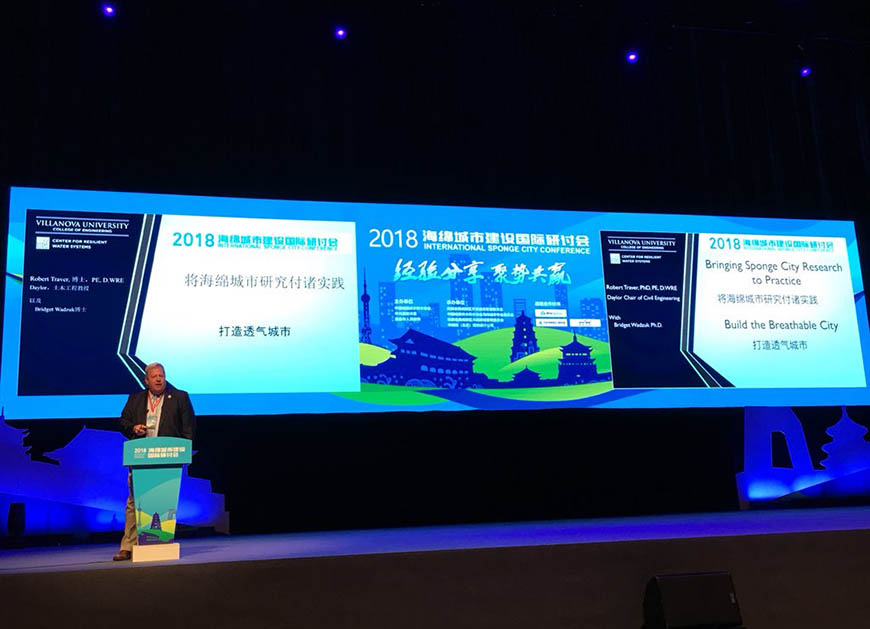Villanova Engineers Share Stormwater Expertise in China

Dr. Robert Traver
Villanova Civil and Environmental Engineering Professors, Drs. Bridget Wadzuk, PE, and Robert Traver, PE, D.WRE, F.EWRI, F.ASCE, director of the Villanova Center for Resilient Water Systems, recently returned from China where they visited three “Sponge Cities” and met with the country’s stormwater professionals. They were joined by Villanova Civil Engineering alumnus Marc Cammarata ’98, who serves as Deputy Commissioner of Planning and Environmental Services at the Philadelphia Water Department. Launched in 2015, the Sponge City initiative aims to tackle urban water issues, including surface water floods, by building large-scale stormwater projects that aim to “soak up” floodwater. The projects are being built in more than 30 cities, including Shenzhen, Xi’an and Beijing, which were visited during this trip.
While in Shenzhen, Drs. Traver and Wadzuk presented Villanova’s research to about 50 area professionals and regulators and toured several stream and park restoration projects. Traveling to Xi’an, they attended and presented at the first International Academic Conference on Sponge City Construction. Dr. Traver delivered one of the keynote speeches, sharing his expertise from years of transitioning research from theory to practice at Villanova University. Cammarata presented on Philadelphia’s Green City, Clean Waters green infrastructure program, which he played a leading role in implementing. The conference was attended by more than 2,000 engineers, ecologists, academics, architects and scientists and was streamed live to nearly 800,000 others. Drs. Wadzuk and Traver also presented in smaller breakout sessions; Dr. Traver on “Villanova’s Green Stormwater Infrastructure” and Dr. Wadzuk on “Connecting Climate with Green Infrastructure Design.” Dr. Wadzuk also presented her work to doctoral students in Beijing at Tsinghua University.
Following the trip, Drs. Traver and Wadzuk submitted a National Science Foundation proposal with Tsinghua University, co-sponsored by NSF-China. The proposal responds to a call from both countries for collaboration on fundamental research that addresses critical environmental sustainability challenges.
